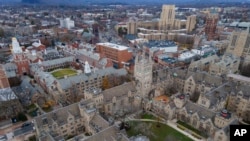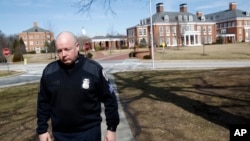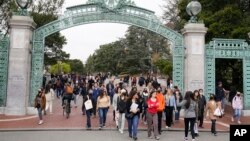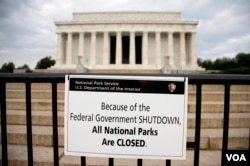Student Union
- By Doug Bernard
Life During Shutdown
This just might be what some of my colleagues call a "teachable moment." Or, it just might be a longish silence.
As I expect many of you have heard, the U.S. federal government is in a partial shutdown. Partial because some government services, like the border patrol or air traffic control, remain operating, and shutdown because other elements of the government are not.
The why of the shutdown is both very simple and stupefyingly complex. First, the simple. Every year, starting October 1st, the U.S. Congress must approve - and the President must sign - a budget to fund federal government operations. If a budget is not signed for any part of the government, that part simply cannot operate as technically there is no money to be spent.
This year, Congress was unable to agree on funding nearly any part of the government, with the one exception of pay for active-duty military personnel. That means that large parts of the Executive branch, and perhaps some parts of the Judicial branch in the near future, will have to be shut down. Smart observers will note that there's one branch missing here: the Legislative branch. All of Congress remains fully funded, thanks to the 27th amendment to the Constitution which specifies that salaries in the House and Senate cannot change until after a congressional election.
Now, some parts of the government are still operating, despite not being funded. For example, mail delivery will continue, Social Security checks will go out, and even here at the VOA, live radio and TV broadcasts will continue, despite the fact that none of those employees will be paid until Congress approves appropriations for the government - that's because those and other services are considered to be in national security interests.
That said, large parts of the federal government will not be open. And sadly, that includes the "Student Union", for the time being.
Believe it or not, all that was the easy part. Some government services are open, some are closed, and that will be the state of affairs until Congress acts and the President approves. Pretty much end of story.
The stupefyingly complex part of the answer revolves around the many policy debates and political divisions that currently roil the American landscape. Key among those is the implementation of the Affordable Care Act, commonly referred to as "Obamacare." Explaining the hows and whys of those differences could fill a newspaper and then some...and I, as your editor, only am allowed a few more hours to work before I have to shut down myself.
Here's the point: until the federal government is fully funded, it's unlikely the "Student Union" will be up and running. That''s a shame, as I'm sure many of our new team of contributors have much to say. I wish I could share those stories, but I won't be allowed to. In fact, I won't even be allowed to check incoming emails from you all, let alone answer them. No Facebooking, no tweeting - no nothing.
We've set up a few posts for auto-publish. That means they were prepared pre-shutdown, and I just programmed the blog to automatically publish them on a certain date and time. Additionally, until we're allowed back to work, I won't be able to post or reply to any comments you leave.
So if this is a teachable moment, when we return I hope we all can share some perspectives on this. That, and move forward with your thoughts, questions and perspectives on studying here in the U.S.
Apologies for the temporary silence, but we'll be back very soon - I hope. Until then, best of luck to all in your classes!
See all News Updates of the Day
Proposed settlement offered over financial aid allegations

A group of U.S. colleges and universities have agreed to settle a lawsuit alleging deceptive financial aid tactics, according to a report published in The Hill.
The schools would pay $284 million to plaintiffs who were enrolled full-time and received financial aid between 2003 and 2024.
The schools have denied the allegations. (April 2024)
Universities in Middle East building research relationships with China

As China bolsters research relationships with universities in the Middle East, the United States has taken notice – especially when that research involves artificial intelligence.
Reporting for University World News, Yojana Sharma has the story. (March 2024)
Tips for staying safe while studying in the US

Recent news events have raised safety concerns among some international students studying in the United States.
Adarsh Khandelwal, writing in the India Times, has tips for staying safe from the moment you arrive until the day you complete your studies. (March 2024)
Some colleges are making digital literacy classes mandatory

A 2019 study by Stanford found that most college students can’t tell the difference between real and fake news articles. Amid rampant online disinformation, and the threat of AI-generated images, some schools are making students learn “digital literacy” to graduate.
Lauren Coffeey reports for Inside Higher Ed. (March 2024)
With federal student aid delays, students aren’t sure what college will cost

The U.S. Department of Education’s federal student aid form (FAFSA) experienced serious glitches and delays this year.
Now, many students have been admitted to college, but don’t know how much money they’ll need to attend.
Read the story from Susan Svrluga and Danielle Douglas-Gabriel for The Washington Post. (March 2024)







